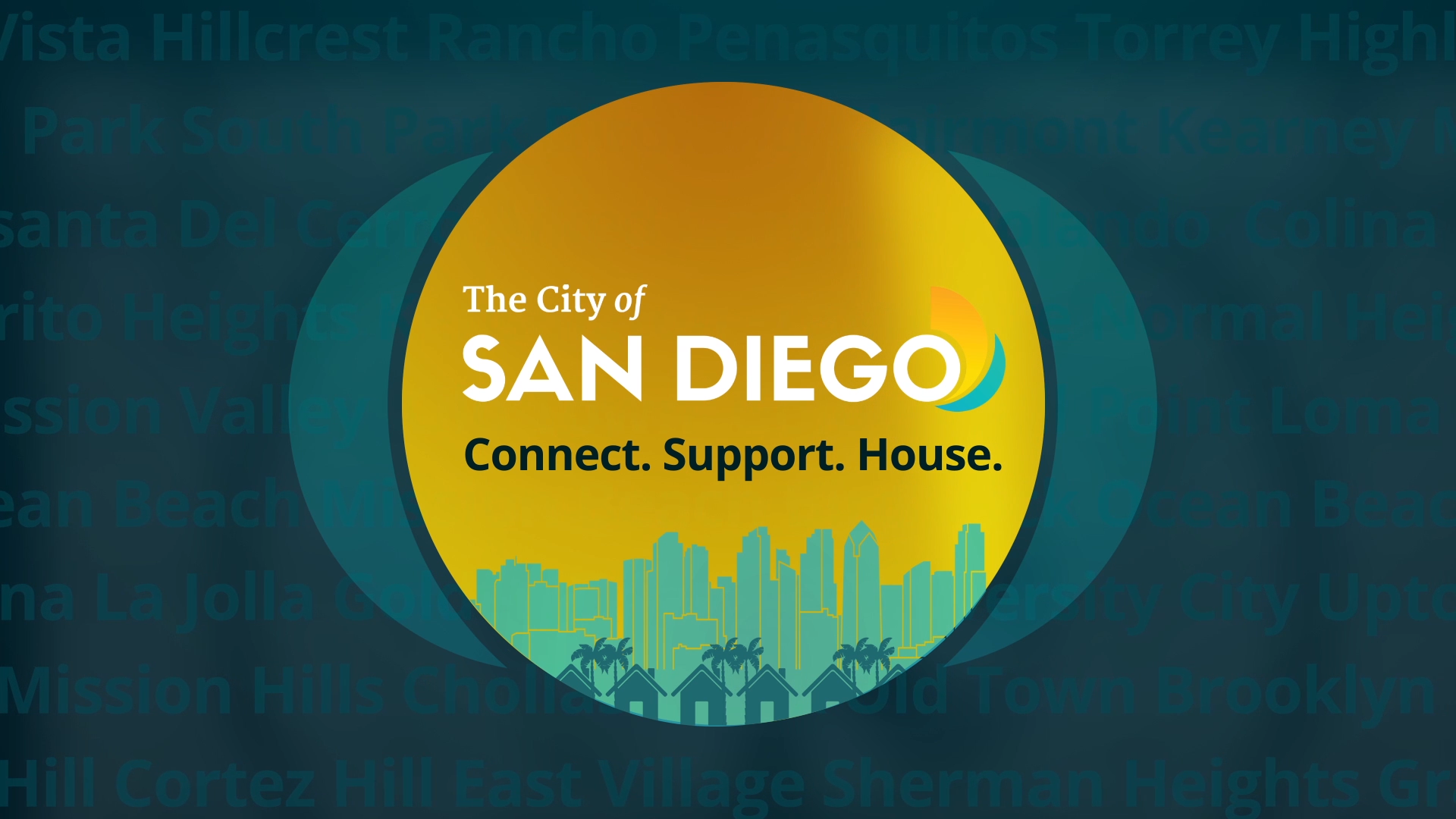Council Votes to Continue Bridge Shelter Program for Homeless through June
Mayor Faulconer Wins Approval to Extend Program That Provides Beds and Services for Nearly 700 Homeless Individuals Every Night

Tuesday, September 18, 2018 - NEWS RELEASE
San Diego – With more than 300 homeless men, women and children finding permanent housing in the first nine months of a new Bridge Shelter program, Mayor Kevin L. Faulconer won City Council approval to extend operating contracts for the three shelters through June and implement significant changes to help improve performance.
The shelters are a key piece of Mayor Faulconer’s “Connect, Support, House” strategy to reduce homelessness and will continue to serve up to 674 homeless individuals every day with beds, meals, showers, restrooms, 24-hour security, alcohol and substance abuse counseling and job training as well as help to find permanent housing.
“We are less than a year into this new Bridge Shelter program and we can see more clearly now how they are helping and what we can do to make them work even better,” Mayor Faulconer said. “We all agree that getting those folks into permanent housing is the goal, but we simply don’t have enough affordable housing available. While we wait for those units to be built, these shelters are helping people, caring for them and treating them with respect and dignity as human beings every day.”
Over the last several months, representatives from 19 different cities, including Los Angeles, Sacramento, San Jose and Vancouver, Canada, have visited the San Diego Bridge Shelters to explore replicating the programs in their own cities.
Since they opened in December and January, over 300 individuals have moved through the Bridge Shelters and into permanent or long-term housing. That fell below initial expectations because far fewer individuals were already matched to a housing resource, like a voucher or rapid rehousing subsidy, than originally thought and, therefore, weren’t ready to find a permanent home.
Instead, most of the individuals staying at the Bridge Shelters had a myriad of challenges, from mental illness to addiction to physical limitations. Statistics from the shelters show:
- 35 percent are over the age of 55, which makes finding long-term employment difficult
- 54 percent have no income at all
- 56 percent have a disability
- 34 percent self-report some form of mental illness
Armed with more accurate data about the homeless population being served by the Bridge Shelters, several changes to the operator contracts were made to improve operations. Each Bridge Shelter will replace housing navigators with more skilled case managers and housing specialists to better align with the specific needs of the populations in each location. Additional training in prevention and diversion, trauma-informed care, motivational interviewing and harm reduction are also part of the new contracts.
The City’s three Bridge Shelters include:
- The parking lot on Father Joe’s Villages campus at 14th and Commercial Streets in the East Village, operated by Father Joe’s Villages. Serves families and single women.
- A vacant lot in the 2700 block of Sports Arena Boulevard (behind the Goodwill store) in the Midway District, run by the Veterans Village of San Diego. Serves military veterans.
- A vacated street at 16th Street and Newton Avenue, operated by Alpha Project. Serves single adults.
The City also has taken several other actions over the past year to address homelessness, including:
- Housing more than 1,000 homeless veterans through the “Housing Our Heroes” campaign.
- Expanding a Safe Parking Program that provides a safe space for homeless individuals living out of their cars. Two sites now serve more than 200 people each night.
- Opening Storage Connect Center, a storage facility for homeless individuals to keep their belongings while they look for a job, access services or go to school.
- Advocating in Sacramento with the Big 11 Mayors for state funding to address homelessness, which resulted in the state’s Homeless Emergency Aid Program (SB 850), which will deliver more than $14 million directly to the City of San Diego.
- Adopted many of the “Housing SD” policies and initiatives intended to increase housing affordability and supply by reducing regulations and incentivizing more construction.
Bridge Shelters are an innovative approach that reflect best practices in serving the most vulnerable members of the homeless population. They serve as a crucial transition point where case managers and housing specialists will work with men and women without shelter to find them an appropriate housing placement.
CONTACT: Greg Block at (619) 227-3752 or gsblock@sandiego.gov

